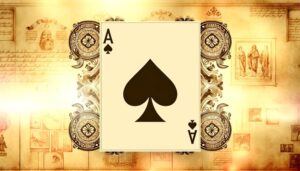Cassidy Name Meaning and Origin
Cassidy is a Gaelic name that originates from the Irish surname O'Caiside, translating to 'descendant of Caiside.' The name 'Caiside' derives from the Gaelic word 'caisideach,' meaning 'curly-haired,' reflecting physical traits significant in Irish culture. Historically, the name Cassidy is associated with learned families, particularly those linked to medicine and scholarship.
This name, possessing unisex appeal, symbolizes inclusivity and resilience. Its use in literature and modern narratives emphasizes a bridge between rich historical significance and contemporary relevance.
Those intrigued by Cassidy's deep-rooted cultural and historical contexts will uncover further fascinating aspects.

Key Takeaways
- Cassidy is derived from the Irish surname O'Caiside, meaning 'descendant of Caiside'.
- The name originates from the Gaelic word 'cas', translating to 'curly-haired' or 'curly-headed'.
- Cassidy is associated with County Fermanagh, reflecting a connection to Celtic heritage and traditions.
- Variations of Cassidy include Cassady, Casidy, and Kassidy, showcasing its adaptability.
- Cassidy symbolizes strength, resilience, creativity, and adventure in cultural narratives.
Gaelic Origins
Rooted in the rich linguistic heritage of the Gaelic language, the name Cassidy originates from the Irish surname O'Caiside, which translates to 'descendant of Caiside.' The suffix 'O' signifies lineage, denoting a familial connection to an ancestor named Caiside.
Historically, this surname is linked to various Gaelic clans, particularly in the Ulster region, reflecting its deep-rooted presence in Irish society. The name Caiside itself is derived from the Gaelic word 'caisideach,' implying a curly-haired individual, which was a distinguishing characteristic in ancient times.
This nomenclature encapsulates a rich tapestry of Irish culture, embodying the essence of Gaelic traditions and familial lineage. This way, the name Cassidy serves as a tribute to the enduring legacy of Gaelic ancestry and identity.
Meaning of Cassidy
Understanding the meaning of Cassidy requires an exploration of its linguistic roots and the cultural significance embedded within the name. Derived from the Gaelic surname “Ó Caiside,” Cassidy originally referred to descendants of a man named “Caiside. ” The name holds traditional Irish roots and is commonly associated with a sense of strength, resilience, and familial pride. Additionally, Cassidy has an autumn name meaning, symbolizing change, transition, and the beauty of nature’s transformation. This layered significance adds depth and complexity to the name Cassidy, making it a meaningful choice for many individuals and families. The autumn name origin of Cassidy further connects the name to the changing seasons and the cyclical nature of life. In many cultures, autumn is a time of reflection, harvest, and preparing for the future, reflecting the qualities of endurance and forward-thinking often associated with the name Cassidy. This multi-faceted meaning makes Cassidy a name that resonates on different levels, both linguistically and culturally, adding to its enduring popularity and significance.
Derived from the Gaelic surname “Ó Caiside,” Cassidy translates to “descendant of Caiside.” The name “Caiside” itself originates from the Gaelic word “caisideach,” which means “curly-haired.” This etymology not only reflects physical attributes but also carries cultural resonance, as personal characteristics often played a crucial role in Gaelic naming traditions.
The name Cassidy embodies a connection to ancestry and heritage, serving as a linguistic bridge to the Gaelic past. Within this context, Cassidy holds a multifaceted identity, intertwining familial lineage with a broader cultural narrative, thereby anchoring individuals to their historical roots and cultural identity.
Historical Usage
The historical usage of the name Cassidy reveals its enduring presence within Gaelic society, reflecting both social hierarchies and evolving cultural identities.
Originating from the Gaelic surname Ó Caiside, meaning 'descendant of Caiside,' it was traditionally associated with learned families, particularly those involved in medicine and scholarship. The name Caiside itself is derived from the Gaelic word 'cas,' meaning 'curly-haired,' likely referring to a distinctive physical trait.
Over centuries, the Cassidy lineage has been recorded in various annals, emphasizing their prominence in early Irish history. As Gaelic culture evolved, the name Cassidy shifted from a marker of scholarly prowess to a widely recognized surname, symbolizing a rich heritage intertwined with Ireland's complex social fabric.
Cassidy in Literature
Building upon its historical roots, the name Cassidy has also found a notable place in literature, often symbolizing characters with depth and a connection to their Irish heritage. Authors frequently utilize the name to evoke a sense of tradition, resilience, and authenticity.
In contemporary novels, Cassidy often embodies protagonists who navigate complex personal and cultural landscapes, reflecting the name's rich narrative potential. The literary use of Cassidy can be traced back to its Gaelic origins, linking characters to the ancient wisdom and folklore of Ireland.
This not only enriches the storytelling but also provides readers with a nuanced understanding of Irish culture. Consequently, Cassidy remains a literary device that bridges historical significance with modern thematic relevance.
Gender Neutral Appeal
Cassidy's unisex appeal has contributed greatly to its popularity, reflecting broader modern naming trends that favor gender-neutral options.
Historically, the name's Irish origins did not specify gender, allowing it to seamlessly adapt to contemporary sensibilities.
This versatility resonates in today's cultural context, where names are increasingly chosen for their inclusivity and universal appeal.
Unisex Name Popularity
Throughout its history, Cassidy has gained momentum as a gender-neutral name, appealing to parents seeking a moniker that surpasses traditional gender boundaries. Its rise in popularity can be credited to several cultural and societal shifts.
- Historical Usage: Initially, Cassidy was primarily a surname, allowing it to shift smoothly into a first name for any gender.
- Celebrity Influence: High-profile figures, both male and female, bearing the name have contributed to its widespread acceptance.
- Literary Appeal: Its presence in literature and media as a versatile name for characters of any gender has further solidified its unisex status.
- Phonetic Balance: The name's balanced phonetics—neither overly masculine nor feminine—enhances its universal appeal.
This multifaceted appeal underscores Cassidy's enduring popularity as a gender-neutral name.
Modern Naming Trends
In contemporary naming conventions, gender-neutral names like Cassidy are increasingly favored for their inclusivity and modernity. This trend reflects broader societal shifts towards gender equality and fluidity, as individuals seek names that transcend traditional gender binaries.
Historically, names have often been rigidly categorized as male or female, but modern parents are progressively embracing names that offer flexibility and personal expression. Cassidy, with its Irish roots and melodic phonetics, exemplifies this trend, appealing for its versatility and cultural resonance.
As society moves towards greater acceptance of diverse identities, names like Cassidy serve not just as identifiers but as affirmations of individuality and inclusivity, making them a popular choice in modern naming practices.
Popularity Over Time
The popularity of the name Cassidy has experienced noticeable fluctuations over the decades, reflecting broader cultural and societal trends. Initially, Cassidy was mainly a surname, but its evolution to a given name saw a gradual rise.
Key periods include:
- 1980s: Cassidy began gaining momentum, particularly in English-speaking countries.
- 1990s: The name reached its peak, driven by a cultural shift towards unique and unisex names.
- 2000s: Popularity waned slightly as other trendy names emerged.
- 2010s: The name stabilized, maintaining a steady presence without major surges.
These changes underscore how names ebb and flow in popularity, often influenced by media, celebrity culture, and evolving societal preferences for distinct identifiers.
Famous People Named Cassidy
The name Cassidy has been borne by various notable individuals across different fields, contributing to its recognition and cultural significance.
Among these, the American actor and singer David Cassidy gained widespread fame in the 1970s.
The historical figure Butch Cassidy left a lasting legacy as an infamous outlaw of the American Old West.
These examples illustrate the diverse impact of individuals named Cassidy on both contemporary and historical landscapes.
Notable Cassidy Celebrities
Among the notable individuals bearing the name Cassidy, several have made significant contributions to various fields such as entertainment, sports, and politics.
- David Cassidy – A pop culture icon of the 1970s, he gained fame as Keith Partridge in the musical sitcom 'The Partridge Family.'
- Butch Cassidy – An infamous figure in American Western history, known for his role as a bank and train robber.
- Shaun Cassidy – A multi-talented actor, singer, and television producer, recognized for his role in the 1970s TV series 'The Hardy Boys Mysteries.'
- Eva Cassidy – A singer and guitarist celebrated for her hauntingly beautiful interpretations of jazz, blues, and folk music.
Each of these individuals has left an indelible mark in their respective domains, resonating with audiences across generations.
Historical Figures Named Cassidy
While the name Cassidy has been associated with many modern celebrities, it also has a rich history featuring figures who have made noteworthy contributions in various historical contexts.
One notable individual is Butch Cassidy, born Robert LeRoy Parker, an infamous outlaw who led the Wild Bunch gang in the late 19th century American West. His exploits became legendary, contributing to the romanticized image of the Old West.
Another historical figure is Cathy Cassidy, a British author whose literary works have profoundly impacted contemporary children's literature. These individuals, each in their unique domains, underscore the name Cassidy's historical and cultural resonance, illustrating its enduring appeal across different eras and spheres of influence.
Modern Cultural Impact
In contemporary society, the name Cassidy has seamlessly woven itself into various facets of popular culture, from music and film to literature and beyond. Its modern cultural resonance is evident through:
- Music: David Cassidy, a prominent figure in 1970s pop culture, influenced an entire generation with his role in 'The Partridge Family.'
- Film: The character Butch Cassidy, portrayed by Paul Newman in the classic film 'Butch Cassidy and the Sundance Kid,' remains iconic.
- Literature: Cassidy is featured in numerous contemporary novels, symbolizing both strength and complexity.
- Television: The name Cassidy appears in various TV series, adding a layer of familiarity and accessibility to the characters.
This name's persistent presence highlights its enduring appeal and multifaceted role in modern narratives.
Conclusion
The name Cassidy, with its Gaelic origins and rich historical usage, serves as a cultural tapestry woven through centuries of linguistic evolution and literary references.
Its gender-neutral appeal and fluctuating popularity reflect broader societal shifts.
In the same way a river carves its path through varied landscapes, the name Cassidy has left an indelible mark on both historical records and modern culture, embodied by notable individuals who have carried it with distinction.






